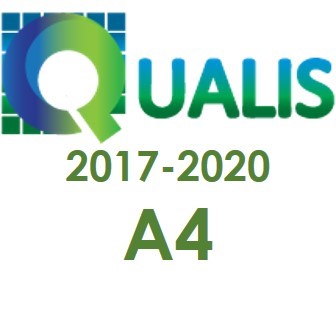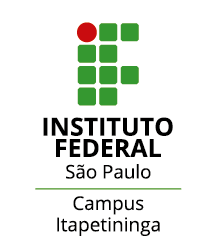Conexões entre neuroeducação e formação de professores
Paraules clau:
Currículo. Formação docente. Conteúdos. Neurociências Cognitivas.Resum
Este trabalho teórico é parte de um pós-doutorado e é fruto de uma análise em artigos e livros datados no período de 2008 a 2019. O objetivo principal é apresentar algumas conexões entre as neurociências cognitivas e a formação de professores. Os resultados apontam para a imprescindibilidade em expor aos professores e aos estudiosos os aspectos relacionados ao funcionamento cerebral no ato de aprender, tais como emoções, ansiedade, dom, cultura, plasticidade cerebral, transmissão de informações, entre outros. São necessárias mais pesquisas colaborativas para consolidar o diálogo entre as neurociências cognitivas e a educação.
Descàrregues
Referències
XXX. Neurociência cognitiva e matemática. In: PINA, R.; DÖRR, R. (ed.). Cenários de pesquisa em educação matemática. Jundiaí: Paco Editorial, xxxx.
AMALRIC, M.; DEHAENE, S. Origins of the Brain Networks for Advanced Mathematics in Expert Mathematicians. PNAS. V. 113, n. 18, p. 4909-4917, 2016.
ANSARI, D.; COCH, D.; SMEDT B de. Connecting Education and Cognitive Neuroscience: Where Will the Journey Take us? Educational Philosophy and Theory. V. 43, n. 1, 2011.
BOALER, J. Mentalidades matemáticas: estimulando o potencial dos estudantes por meio da matemática criativa, das mensagens inspiradoras e do ensino inovador. Porto Alegre: Penso, 2018.
CARVALHO, F. H. H. de. Neurociências e educação: uma articulação necessária na formação docente. Trabalhos em Educação e Saúde. V. 8, n. 3, p. 537-550, 2011.
DAMÁSIO, A. O sentimento em si: corpo, emoção e sentimento. Lisboa: Temas e Debates, 2017.
DELGADO, C. El nuevo cerebro humano: criticas, reflexiones y nuevos descubrimientos. Colombia: Ediciones B. Grupo Z, 2017.
FEILER, J. B.; STABIO, M. E. Three Pillars of Educational Neuroscience from Three Decades of Literature. Trends in Neuroscience and Education. V. 13, 2018.
GALLESE, V.; LAKOFF, G. The Brain’s Concepts: the Role of the Sensory-Motor System in Conceptual Knowledge. Cognitive Neuropsychology. V. 22, n. 3, p. 455-479, 2005.
GATTI, B. A.; SHAW, G. S. L.; PEREIRA, J. G. L. T. Perspectivas para formação de professores pós pandemia: um diálogo. Práxis Educacional. V. 17, n. 45, 2021, p.1-25.
GOMES, A. R.; COLOMBO JÚNIOR, P. D. Diálogos necessários: neurociência, emoções e a formação inicial de professores. Revista Iberoamericana de Educación. V. 78, n. 1, 2018.
GOSWAMI, U. Principles of Learning, Implications for Teaching: a Cognitive Neuroscience Perspective. Journal of Philosophy of Education. V. 42, 2008.
GOSWAMI, U. Phonological Development across Different Languages. In: WYSE, D.; ANDREWS, R.; HOFFMAN, J. (ed.). The Routledge International Handbook of English, Language and Literacy Teaching. London: Routledge, 2010.
HERCULANO-HOUZEL, S. Neurociência e educação. Belo Horizonte: CEDIC, 2010.
JENSEN, E. O cérebro, a bioquímica e as aprendizagens. Trad. Joana Pinto. Portugal: Asa Editores, 2002.
KAZEMI, E. et al. Getting Inside Rehearsals: Insights from Teacher Educators to Support Work on Complex Practice. Journal of Teacher Education. November, 19, 2015.
KELLY, C. The Brain Studies Boom: Using Neuroscience in ESL/EFL Teacher Training. In: GREGERSEN, T. S.; MACINTYRE, P. D. (ed.). Innovative Practices in Language Teacher Education- Spanning the Spectrum from Intra- to Inter-Personal Professional Development. Springer, 2017.
KUCIAN, K. et al. Neurostructural Correlate of Math Anxiety in the Brain of Children. Translational Psychiatry. V. 8, 2018.
LEIKIN, M et al. Brain Activity Associated with Translation from a Visual to a Symbolic Representation in Algebra and Geometry. Journal of Integrative Neuroscience. V. 13, n. 1, 2014.
MAGRINI, M. Cérebro: manual do utilizador. Portugal: Desassossego, 2019.
MCTIGHE, J.; WILLIS, J. Upgrade Your Teaching: Understanding by Design Meets Neuroscience. Alexandria: ASCD Publications. 2019.
NOURI, A.; MEHRMOHAMMADI, M. Defining the Boundaries for Neuroeducation as a Field of Study. Educational Research Journal. V. 27, n. 1, 2, 2012.
NOURI, A. The Neuro-Cultural Bases of Learning and Development: Towards a Culturally Responsive Education. Journal of Curriculum Studies (J.C.S.). V. 11, n. 43, 2017.
NÓVOA, A. Educação 2021: para uma história do futuro. 2009. Disponível em: https://repositorio.ul.pt/handle/10451/670. Acesso em março de 2019.
OBERSTEINER, A. et al. Bringing Brain Imaging to the School to Assess Arithmetic Problem Solving: Chances and Limitations in Combining Educational and Neuroscientific Research. ZDM Mathematics Education. V. 42, p. 541-554, 2010.
PERRENOUD, P. Formar professores em contextos sociais em mudança prática reflexiva e participação crítica. Revista Brasileira de Educação. 1999, set-dez, n. 12. p. 5-21.
PICKERING, S. J.; HOWARD-JONES, P. Educators’ Views on the Role of Neuroscience in Education: Findings from a Study of UK and International Perspectives. Mind Brain Education. V. 1, p. 109-113, 2007.
PIZYBLSKI, L. M.; SANTOS JÚNIOR, G.; PINHEIRO, N. A. M. Relações entre o ensino da matemática e a neurociência. I Simpósio Nacional de Ensino de Ciência e Tecnologia. Paraná, 2009.
QUINN, F. Cognitive Neuroscience and Mathematics Education. 2010. Disponível em: https://pdfs.semanticscholar.org/1150/997b6518793d64a92859973e07c1cab4da39.pdf. Acesso em dez. 2018.
RADFORD, L.; ANDRÉ, M. Cerebro, Cognición y Matemáticas. Relime. V . 12, n. 2, 2009.
RATO, J. R.; CALDAS, A. C. Neurociências e educação: realidade ou ficção? VII Simpósio Nacional de Investigação em Psicologia. Universidade do Minho, fev, 2010.
SCHULMAN, L. S. Those Who Understand: Knowledge Growth in Teaching. Educational Researcher. V. 15, n. 2, 1986. p. 4-14.
SMEDT, B. de; VERSCHAFFEL, L. Traveling down the Road: from Cognitive Neuroscience to Mathematics Education … and back. ZDM Mathematics Education. V. 42, p. 649-65, 2010.
SOUSA, A. M. O. P.; ALVES, R. R. N. A neurociência na formação dos educadores e sua contribuição no processo de aprendizagem. Revista de Psicopedagogia. V. 34, n. 105, São Paulo, 2017.
STEWART, M. Making Sense of a Teaching Programme for University Academics: Exploring the Longer-Term Effects. Teaching and Teacher Education. V. 38, February, 2014. p. 89-98.
VILELAS, J. Investigação: o processo de construção do conhecimento. Lisboa: Sílabo. 2017.
Descàrregues
Publicades
Com citar
Número
Secció
Llicència
Drets d'autor (c) 2021 Revista Internacional de Formação de Professores

Aquesta obra està sota una llicència internacional Creative Commons Reconeixement-NoComercial-CompartirIgual 4.0.



 Este trabalho está licenciado sob uma licença
Este trabalho está licenciado sob uma licença 